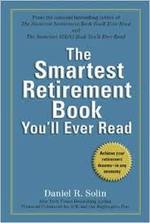
Particularly in times of extreme volatility, pundits come out of the woodwork to "explain" to the rest of us the reasons underlying the rise or fall of the stock market. For example, how many times have you seen articles attributing recent market declines to a drop in oil prices?
I suspect if you polled investors, many would believe there is a direct relationship between the price of oil and the stock market. This belief is fueled by market commentators like Jim Cramer. In an article published in December 2014, Cramer "explains" how lower oil prices affect U.S. markets. According to him, the S&P 500 goes down every time oil prices go down.
Cramer is not alone in relating stock market behavior to the price of crude oil. Here's a recent headline from USA Today: "Dow Up 200-Plus as Oil Rallies Above $32". The import is clear. If only the price of crude oil would continue to increase, the market would gain momentum.
There are several problems with this assumption. We used to fret over high oil prices. Low prices were considered a positive event for the market. As this 2008 analysis from the Federal Reserve Bank of Cleveland noted, higher prices negatively impact transportation, heating and production costs, and can crimp discretionary spending by consumers as well. No wonder you may be confused by all the hand-wringing over low oil prices.
In fact, the authors, Andrea Pescatori and Beth Mowry, found a very weak relationship between the price of oil and the S&P 500 index. Refuting Cramer's uninformed observation to the contrary, no correlation was found between oil prices and the price of stocks with a 95 percent level of confidence.
Of course, some sectors of the economy -- most notably transportation -- are directly affected by the price of oil. Nevertheless, trying to predict the reaction of the market to changes in the price of oil appears to have very little to support it as a worthwhile endeavor.
So what's the biggest myth? It's that the "explanation" for what's happening in the market at any given time is often just hot air. All news -- good or bad -- is already factored into market prices. It's not a mystery to investors that there are problems with China's economy and unrest in the Middle East. Contrary to this Jan. 8 headline in The Wall Street Journal, the Dow didn't tumble nearly 400 points "on China worries." Those "worries" were already well known.
What causes prices to rise or fall is not information already in the public domain. It's whether news about events is better or worse than the markets anticipate. Since no one knows what that news will be, trying to predict the direction of markets, or extrapolate it from good or bad news already published, is little more than speculation.
Even if you knew whether future news would be good or bad, you could not predict the impact of that news on stock prices with confidence. There are many examples of good news negatively impacting the price of a stock and bad news causing it to rise.
Now that you know the biggest market myth, how can you profit from this information? Start by ignoring most of the financial media. They can't "explain" the market with any greater accuracy than a psychic can predict the future. Relying on their purported "expertise" can be harmful to your financial health.
 Dan Solin is a New York Times bestselling author of the Smartest series of books, including The Smartest Investment Book You'll Ever Read, The Smartest Retirement Book You'll Ever Read and his latest, The Smartest Sales Book You'll Ever Read.
Dan Solin is a New York Times bestselling author of the Smartest series of books, including The Smartest Investment Book You'll Ever Read, The Smartest Retirement Book You'll Ever Read and his latest, The Smartest Sales Book You'll Ever Read.The views of the author are his alone and may not represent the views of his affiliated firms. Any data, information and content on this blog is for information purposes only and should not be construed as an offer of advisory services.
-- This feed and its contents are the property of The Huffington Post, and use is subject to our terms. It may be used for personal consumption, but may not be distributed on a website.
